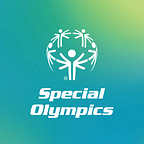UN Secretary General Special Envoy visits Special Olympics Kenya to Share Vision of Inclusive World
The United Nations Special Envoy on Disability and Accessibility, visited Kenya to learn about its Communities, the IDEA project of Special Olympics with Catholic Relief Services and meet with family members and Special Olympics Athlete Leaders.
The United Nations Special Envoy of the Secretary General of the United Nations for Disability and Accessibility, María Soledad Cisternas Reyes, visited Ethiopia and Kenya to launch the “Global Campaign for Good Treatment of Girls, Boys and Adolescents with Disabilities in the World” in Africa and commemorate the International Day of Persons with Disability, which takes place annually on 3 December.
In Addis Ababa, Ethiopia, Ms. Maria Soledad Cisternas launched the campaign at the United Nations Headquarters of the African Economic Commission (ECA), and a delegation of Special Olympics International and Special Olympics Africa Regional Office team members joined her. Javier Vasquez, Special Olympics Vice President of Health Programs, delivered the closing remarks at ECA.
During her mission to Africa, the United Nations Special Envoy of the Secretary General of the United Nations for Disability and Accessibility visited Kenya to have more information about its Communities, the IDEA project of Special Olympics with Catholic Relief Services and meet with family members and Special Olympics Athlete Leaders.
The UN Special Envoy is prioritizing the human rights and situation of children and adolescents with intellectual disabilities as part of her “Global Campaign for Good Treatment of Girls, Boys and Adolescents with Disabilities in the World”.
The Golisano Foundation’s support of the Special Olympics Healthy Communities program, and achieving equal access to health for persons with intellectual disabilities. This includes partnerships with schools, universities, health care providers and bringing inclusive change to national health systems, with the goal of reaching 11 million people with access to health by 2020.
The visit of UN Special Envoy to Ethiopia and Kenya was supported by Javier Vasquez, Special Olympics Vice-President of Health, Faith Chabedi, Partnerships for Inclusive Health Manager and the Special Olympics Africa Regional President, Charles Nyambe. Father Alejandro Ruiz from the “Don Orione Community Training Center” for persons with intellectual disabilities and the Strathmore University Law School also supported the UN Special Envoy’s visit to Kenya.
The United Nations Special Envoy of the Secretary General of the United Nations for Disability and Accessibility
There are more than 1 billion people with some form of disability, accounting for 15 per cent of the world population. In spite of remarkable advances towards accessible and disability-inclusive societies, an enormous gap remains between commitments made and the daily experiences of persons with disabilities.
A unified effort must therefore be made to ensure that persons with disabilities are not left behind as promised in the 2030 Agenda and Sustainable Development Goals. As UN Special Envoy, Ms. Cisternas will help promote the human rights of persons with disabilities, with a particular emphasis on accessibility for all.
Expanding Early Childhood Development for Kenyans With Intellectual Disabilities
Community activities can encourage acceptance of children with intellectual disabilities, when stigma is broken down by positive parenting education and family support networks.
The impact of this in Kenya is crucial, as some mothers are left by their husbands after the birth of a child with an intellectual disability, or ignored by their neighbors, explained Luciah Karimi, a community health volunteer.
This inclusive IDEA program includes physiotherapy and health screenings, and through other partners are referred for further medical treatment. This initiative is made possible by the vital support of Catholic Relief Services.
IDEA physiotherapist Dennis Ombese loves seeing children achieving milestones, such as two children who have started walking without support for the first time. Through therapy, now almost all of them have achieved neck control and the ability to sit.
“When I first brought Damacklin here, she could not walk at all,” explains her mother. “Now she can walk and play all on her own, and I can even begin looking for work while she goes to school.”
During her visit to Kenya, the United Nations Special Envoy of the Secretary General of the United Nations for Disability and Accessibility also launched her Global Campaign at the Strathmore University Law School where governmental officials, United Nations agencies, NGOs working on disabilities, persons with disabilities, faculty and law students also attended.
